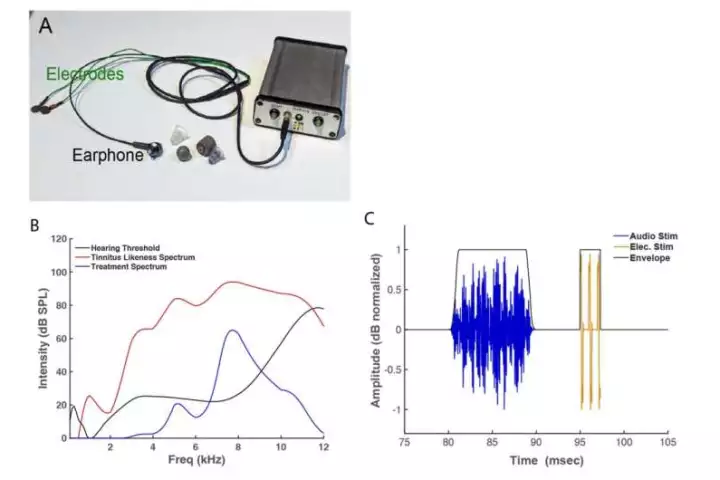tinnitus
Often described as a ringing in the ears, tinnitus is a hearing condition in which people hear noises, hisses or hums with no external source. The experience of tinnitus can move between the ears, and can vary in intensity and pitch, sometimes disappearing altogether or returning. It's a symptom, not a disease, and can be caused by noise exposure, medications, wax buildups, ear injury, or even circulatory disorders.
-
Pupil dilation and subtle facial changes in response to sound can reveal how severe tinnitus is. Through this, researchers have discovered a new way to objectively gauge how bad the condition is, more accurately diagnosing tinnitus and treating it.
-
If you have the persistent tone in your ears known as tinnitus, you'll want to pay attention to a new study that shows a link between certain foods and a reduction in risk. The finding offers a potentially easy way to get some peace and quiet.
-
You could compensate for broken speakers by cranking up the volume on others that still work. It turns out that the brain does the same thing when damaged hair cells in the ear lead to hearing loss – and this could be causing your tinnitus.
-
A study has found that a smartphone app that uses a chatbot to deliver cognitive behavioral therapy can significantly reduce the distress caused by tinnitus, as well as the anxiety and depression that often accompanies it.
-
A "bi-sensory" treatment combining precisely timed sound and touch has shown impressive results in reducing people's experience of tinnitus, a common and debilitating form of hearing damage that presents as an incessant ringing sound in the ears.
-
The ringing, rushing sound of tinnitus is a complex condition. It's caused by a range of factors, so there's no known one-size-fits-all treatment. But researchers are reporting excellent results with a combination treatment in a smartphone app.
-
A new review into the relationship between COVID-19 and hearing problems is suggesting a number of audio-vestibular symptoms can be associated with the disease. The review found hearing loss, tinnitus and vertigo can all be associated with COVID-19.
-
Tinnitus is an aggravating disorder, causing sufferers to constantly hear a ringing in their ears. A new system could help, though, by simultaneously zapping their tongue and delivering sounds to their ears.
-
Research led by the University of Arizona may have uncovered a new potential treatment target for tinnitus – not the ears but within the brain itself. The study suggests that neuroinflammation is to blame, and could be a new way to fix the problem.
-
A team of Swedish researchers have discovered three new types of neurons, which help carry auditory signals from the ear to the brain and may hold the secrets to treating hearing disorders like tinnitus.
-
This device could be what millions of people worldwide have been waiting for – an effective treatment for tinnitus. Human trials have shown precisely timed sounds and weak electrical pulses delivered by the device can reduce or even eliminate that ringing in your ears.










